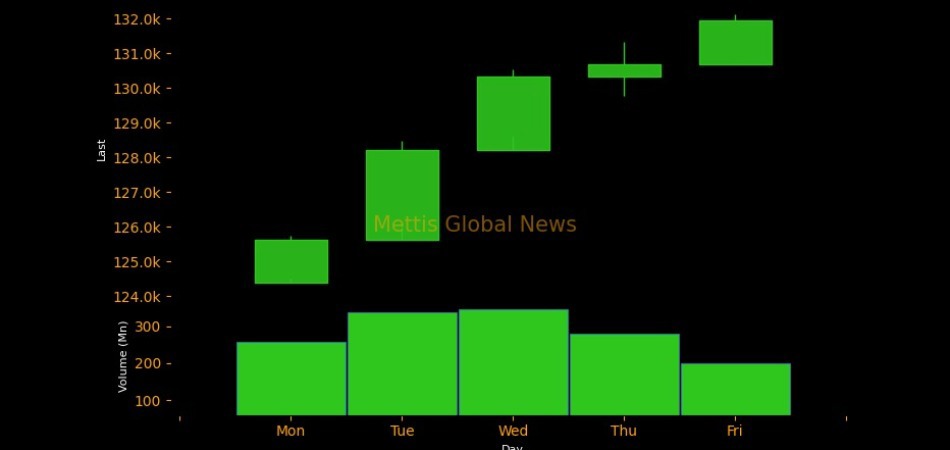Budget FY23: Hitting the panic button?

By MG News | June 10, 2022 at 02:53 PM GMT+05:00
June 09, 2022 (MLN): Subsequent to the long streak of dwindling macros, delay in key economic decisions, and political uncertainty, the Pakistan Stock Exchange (PSX) is gradually losing its charm these days. There is a sense of fear prevailing across the board since the IMF instructed budget for FY23 is all set to be announced with a strong likelihood of fiscal tightening.
Though increasing taxation and removal of subsidies are crucial to avail the next tranche from IMF, the concerns on shrinking margins and volumetric sales amid slower growth and higher inflation cannot be ignored. Big investors have already been sidelined from the market considering the possible contraction.
In an effort to put together a hard puzzle, the federal government is considering various tax measures are including consideration include Windfall levy on corporates earning extraordinary profits, a time-bound additional tax on banks, steel, edible oil, tobacco, pharma, and beverages, changes in tax slabs and rates pertaining to salaried persons and higher import duties on edible oil and luxury items.
Meanwhile, tax incentives offered to various sectors would also be withdrawn. Discussed below are some proposed measures for budget FY2022 and the possible impacts, as per market analysts.
Banks:
Proposed Measures: Higher Super tax, tax rate on income from government securities.
Market View: Banks pay a super-tax of 4% which raises the effective tax rate to 39%. An increase of this tax to 7%, as being proposed, can decline profitability by around 5%.
There are different proposals circulating with respect to increase in the tax rate on banks’ income from government securities. One of the proposals is to increase the penal tax rate based on the ADR threshold i.e., a bank with ADR below 40% will be charged 10% instead of 5% while the rate for ADR between 40-50% will be increased to 5% from 2.5%.
Another proposal suggests taxing investment income separately at the current income tax rate i.e. [35% + super tax rate (4%)] plus an incremental tax rate of 5%. The third proposal circulating suggests an additional 5% tax rate on incremental investment income of the bank.
In either case, every 5% additional tax on income from government securities will impact profitability by 8-12%, a report by Arif Habib noted.
Cement:
Proposed Measures: The budget for the Public Sector Development Programme (PSDP) is likely to be reduced to Rs800bn, down 11.1% from FY22, increase in FED by Rs500 per bag, and removal of 2% custom duty on coal import.
In addition to it, the tax holiday for 5 years is allowed to Greenfield industries at 25% of the eligible investment amount, which can be claimed in the initial three years.
Market View: The reduction in the allocated amount of PSDP will reduce the infrastructure activities and thus lesser demand for cement.
Keeping in view higher coal prices internationally, abolishment of custom duty on imports will provide some respite to cement manufacturing companies.
A tax holiday for 5 years will further promote cement plant expansion at lower taxation expenses.
The imposition of FED will have a negative impact on the profitability of cement manufacturers if prices are not passed on.
Textile:
Proposed Measures: Removal of custom duty and antidumping duty on import of Polyester Staple Fiber and imposition of 15% RD on the import of synthetic yarns.
Market View: Removal of customs duty of import of Polyester Staple Fiber will likely improve gross margins of local manufacturers. However, on the other hand, the imposition of RD on the import of synthetic yarns will increase the cost.
In addition to it, surging energy prices and reduced supply of gas and electricity are likely to hit production which will negatively affect the margins of textile exporters.
Autos:
Propose Measures: Advance tax to be increased for non-filers on the purchase of 2000cc+ vehicles.
The sector will likely witness a reduction in the rate of minimum tax to 0.25%.
Market View: This step will make sure the maximum number of people become tax filers. However, it will discourage sales to non-filers, resulting in decline in sales of vehicles. Meanwhile, a decrease in the minimum tax will provide some relief to the sector in case any of the companies witness lower sales volumes.
Fertilizers:
Propose Measures: Increase in GST on fertilizer products, tax on supply of RLNG/Gas to the sector to be reduced to zero, and settlement of outstanding receivables.
Market View: Currently, the GST on fertilizer products is 2%. An increase in GST to 17% will lead to an increase in the price of urea by Rs271 per bag.
It has been proposed to reduce the GST on the provision of gas and RLNG to zero. Currently, GST on output is 2%, while input tax is still in the range of 5% - 17%. With this the mismatch between input and output tax has climbed up to Rs7.8bn per annum, AHL noted.
settlement of outstanding receivables will improve the cash flow stream of the local manufacturers.
Steel:
Propose Measures: The sector will likely to be levied with a windfall tax on profit between 4% to 7%
Market View: This tax would directly hit the bottom line of the steel companies. Meanwhile, the drop in PSDP will also hit the sector’s outlook.
Chemical:
Propose Measures: Decrease in the rate of minimum tax to 0.25% is expected while the government will likely apply a zero-rated duty structure on chemicals for textile producers.
Market View: A decline in minimum tax will provide some respite to the sector in case any of the companies witness decline in profitability. Furthermore, this tax rate is proposed to be made applicable to gross profit instead of turnover.
With regards to zero-rated duty, chemicals will adversely affect sales of local chemical manufacturers.
Real Estate:
Propose Measures: Advance income tax on the purchase of immovable properties and imposition of property tax.
Market View: It will help the government in increasing tax revenues along with discouraging investment in unproductive sectors.
Overall impact on equity market
Market analysts are of the view that the overall budget for FY23 will be Neutral for the equity market in the medium term. However, the imposition of taxes on certain sectors will hit the market sentiments for the time being.
PSX, one of the most documented sectors, seeking the government’s attention to maximize its potential.
To maximize the potential of the PSX by increasing the investor base, and improving market momentum, the government must provide a level playing field against other asset classes such as real estate, etc, Farrukh H Khan, Managing Director PSX said while speaking to Mettis Global.
“PSX is not asking for any subsidy or removal of existing taxes in the upcoming budget of the fiscal year 2022-23. The sector is only asking for equality in terms of tax treatment,” he underlined.
The most critical element in this budget from PSX perspective would be measured in unproductive sectors, especially real estate. This would discourage real estate investments, and bring much-needed liquidity to the formal sector, where PSX could also be a major beneficiary, a report by Ismail Iqbal Securities noted.
Overall, IMF program resumption and reversal in commodity prices would be key factors for market performance in the next fiscal year.
Copyright Mettis Link News
Related News
| Name | Price/Vol | %Chg/NChg |
|---|---|---|
| KSE100 | 131,949.07 198.95M |
0.97% 1262.41 |
| ALLSHR | 82,069.26 730.83M |
0.94% 764.01 |
| KSE30 | 40,387.76 80.88M |
1.11% 442.31 |
| KMI30 | 191,376.82 77.76M |
0.36% 678.77 |
| KMIALLSHR | 55,193.97 350.11M |
0.22% 119.82 |
| BKTi | 35,828.25 28.42M |
3.64% 1259.85 |
| OGTi | 28,446.34 6.84M |
-1.02% -293.01 |
| Symbol | Bid/Ask | High/Low |
|---|
| Name | Last | High/Low | Chg/%Chg |
|---|---|---|---|
| BITCOIN FUTURES | 108,125.00 | 110,525.00 107,865.00 |
-2290.00 -2.07% |
| BRENT CRUDE | 68.51 | 68.89 67.75 |
-0.29 -0.42% |
| RICHARDS BAY COAL MONTHLY | 97.50 | 0.00 0.00 |
0.75 0.78% |
| ROTTERDAM COAL MONTHLY | 106.00 | 106.00 105.85 |
-2.20 -2.03% |
| USD RBD PALM OLEIN | 998.50 | 998.50 998.50 |
0.00 0.00% |
| CRUDE OIL - WTI | 66.50 | 67.18 66.04 |
-0.50 -0.75% |
| SUGAR #11 WORLD | 16.37 | 16.40 15.44 |
0.79 5.07% |
Chart of the Day
Latest News
Top 5 things to watch in this week
Pakistan Stock Movers
| Name | Last | Chg/%Chg |
|---|
| Name | Last | Chg/%Chg |
|---|




 Central Government Debt
Central Government Debt
 CPI
CPI